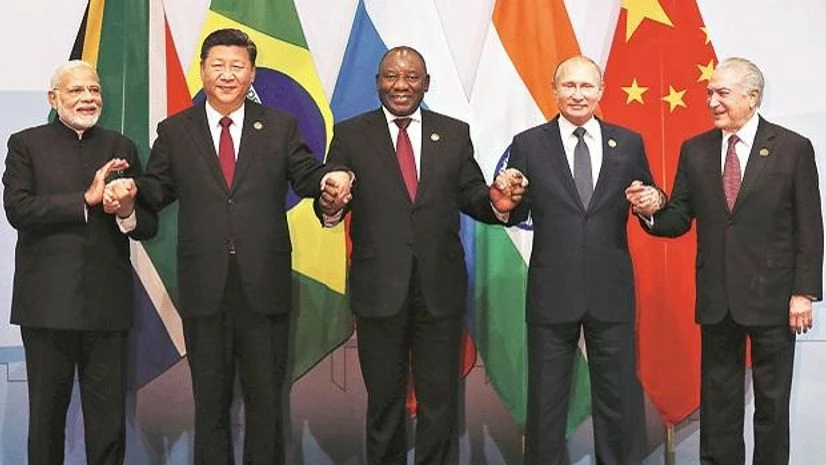Don't want to miss the best from Business Standard?

The BRICS nations today resolved to strengthen multilateral trading system and called upon member countries of the World Trade Organisation to abide by the rules, amid ongoing trade disputes between major economies.
India, China, Brazil, Russia and South Africa also re-affirmed the centrality of the "rules-based, transparent, non-discriminatory, open and inclusive multilateral trading system".
"We recognise that the multilateral trading system is facing unprecedented challenges. We underscore the importance of an open world economy, enabling all countries and peoples to share the benefits of globalisation, which should be inclusive and support sustainable development and prosperity of all countries," the five-nation grouping said in their joint declaration.
In their Johannesburg Declaration issued after their summit today, the nations also called on all WTO members to abide by WTO rules and honour their commitments in the multilateral trading system.
The grouping said that the WTO Dispute Settlement System is a cornerstone of the multilateral trading system and is designed to enhance security and predictability in international trade.
Also Read
"We note with concern the impasse in the selection process for new Appellate Body members that can paralyse the dispute settlement system and undermine the rights and obligations of all members.
"We, therefore, urge all members to engage constructively to address this challenge as a matter of priority," the declaration said.
Acknowledging the need to upkeep the WTO's negotiating function, the grouping agreed to constructively engage in further developing the current legal framework of the multilateral trading system within the WTO.
The grouping advocated for the continued use of fiscal, monetary and structural policies in concert to forge strong, sustainable, balanced and inclusive growth.
"We express concern at the spill-over effects of macro-economic policy measures in some major advanced economies that may cause economic and financial volatility in emerging economies and impact their growth prospects adversely.
"We call on major advanced and emerging market economies to continue policy dialogue and coordination in the context of the G20, FSB (Financial Stability Board) and other fora to address these potential risks," the declaration said.
While noting that the global economy has continued to improve, the BRICS nations said that, however, growth has been less synchronised and that downside risks still remain.
"This is reflected in a variety of challenges including rising trade conflicts, geopolitical risks, commodity price volatility, high private and public indebtedness, inequality and not sufficiently inclusive growth," it said.
The BRICS grouping also re-affirmed their commitment to conclude quota reforms at the International Monetary Fund (IMF) while protecting the voice of the poorest countries by the 2019 spring meetings and no later than the 2019 annual meetings.
"Governance reform of the IMF should strengthen the voice and representation of the poorest members of the IMF, including Sub-Saharan Africa," it added.
The grouping also expressed satisfaction on the progress achieved on establishing the BRICS Local Currency Bond Fund.
They agreed to further strengthen cooperation onthe convergence of accounting standards and auditing oversight of BRICS countries in the area of bond issuance.
Further, the BRICS nations stressed the importance of enhancing their financial cooperation to better serve the real economy and meet the development needs.
"We will continue to enhance currency cooperation, consistent with each central bank's legal mandate, and to explore more modalities of the cooperation. We will also further expand green financing, so as to promote sustainable development in BRICS countries," the declaration said.

)
